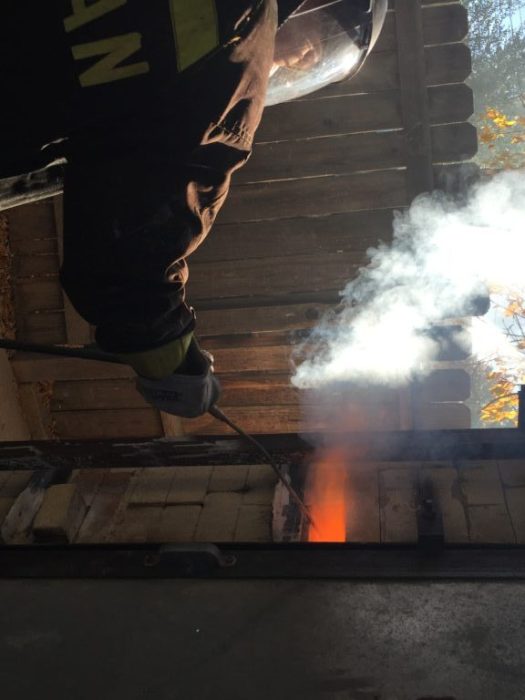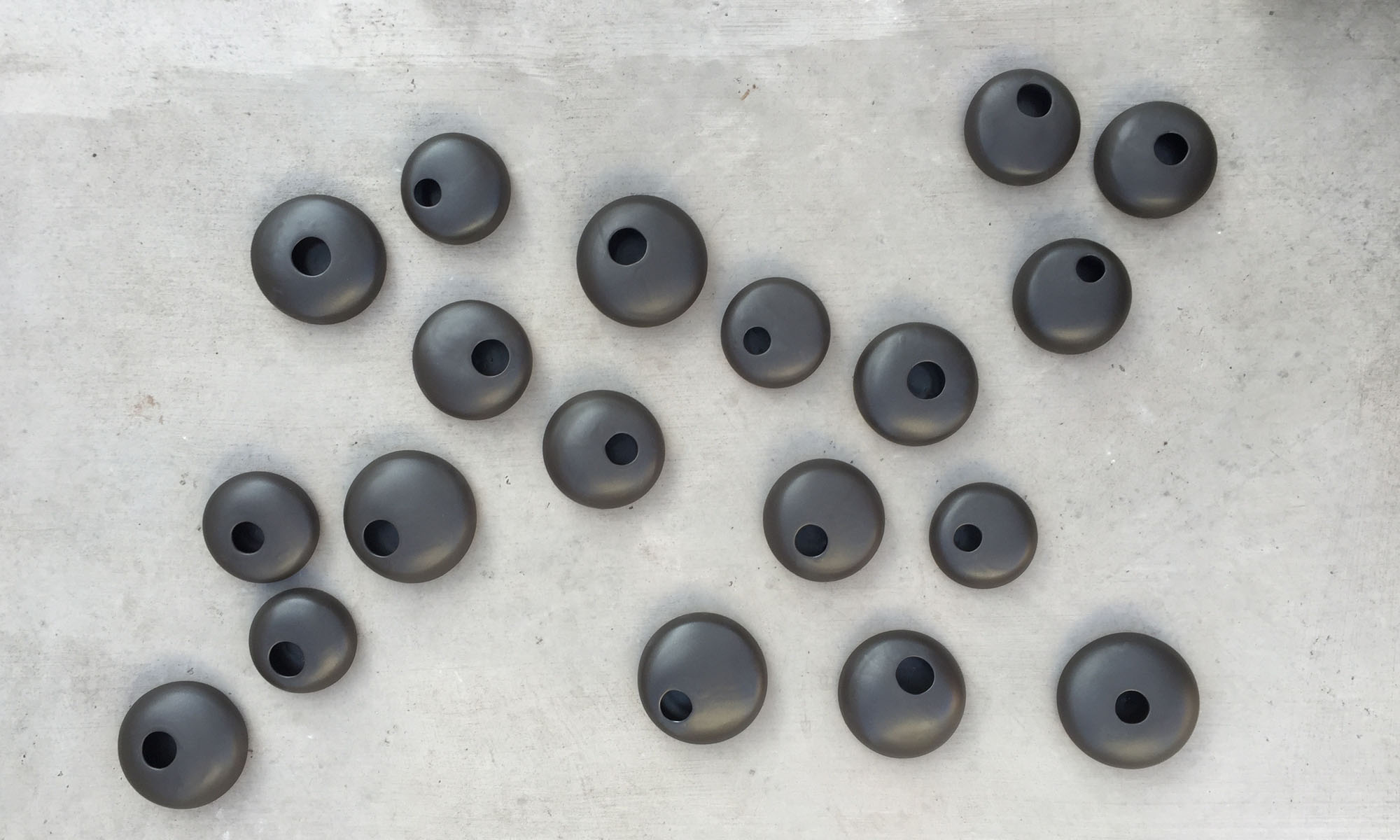I really busted my rear last week to make sure that I had close to 50 pots to fire in the soda kiln at the Colorado Potters Guild last week. It was a marathon and I felt like I was in school again cranking, all pistons fired, who needs to sleep to meet a deadline? kind of sprint. I hate to admit it, but I work well under pressure. Anyone else?
What is soda firing? Emily Murphy has a great explanation on her blog.
[Basically] Soda firing is an atmospheric firing technique where “soda” is introduced into the kiln near top temperature (2350°, ∆10). The soda that we use is: sodium bi-carbonate, also know as baking soda (the Arm and Hammer™ kind), and sodium carbonate, which is also known as soda ash.

The soda essentially creates a glazed surface on bisque that is sometimes described as “juicy” after its introduction in the kiln. It’s addicting and wonderfully unpredictable. The surface variations are really unlimited when used on flashing slips, glazes, different decorating techniques like mishima and even the clay body that is chosen. The first time I participated in a soda firing at the guild, I had no idea how to glaze/decorate my work. I didn’t know what to expect. I just knew that I wanted more.

Over the last 3 years, my work has shifted and I finally have a better idea of how to glaze/decorate my work for the soda firing. I make highly graphic work that is sometimes on the precise side, but when the the soda hits the surface, it can muddle it slightly making the work just a tad more interesting.

My challenge now is to continue to develop my surfaces and to find a way to make them interesting after being fired in an electric kiln to cone 6 (2232° F). After the Colorado Potters Guild Fall 2016 sale the first weekend in November, I plan to start some glaze testing. It might be interesting to test out some glazes that have some movement to create a little bit of that unpredictability that I like so much.

In the meantime, I’m still making work for our sale full speed ahead.

